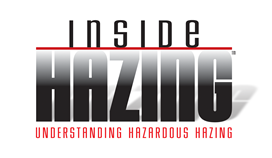Proposed Federal Legislation
In March of 2005, Mrs. Karen Savoy, founder of Mothers Against School Hazing and Dr. Susan Lipkins, psychologist and researcher, traveled to the Capitol in order to gain support for their Hazing Prevention Act. They met with the staff of Senator Mary Landrieu of Louisiana, who promised to author an anti-hazing bill. In addition, the staffs of Senators Clinton and Kennedy, among others, seemed interested in this kind of legislation.
The National Hazing Prevention Act is a bill to define hazing as an illegal act of violence that may be perpetrated by and among children, adolescents or adults and results in serious psychological and physical harm. This bill establishes a National Center on Hazing, to provide financial assistance for programs that effectively combat hazing that occurs in schools, colleges, the military and at work.
National Hazing Prevention Act
Establishes a National Center on Hazing (NCH) to:
Create an agency in which suspected incidents must be reported by those already considered "mandated reporters" and by others who shall be so named by the agency.
In addition, the reporting arm of the agency will have an 800 number to encourage anonymous reports and appropriate teams of experts will be trained to investigate the cases; to determine the validity and severity of the claims.
The agency will be responsible to coordinate local efforts to provide crisis intervention and extended psychological treatment to individuals, schools and communities who have been significantly affected by hazings.
All aspects of the prevention and intervention models will be multi-modal requiring legal, medical, psychological and as appropriate, school, college, work and military systems to be involved.
The National Center on Hazing (NCH) will be responsible to assure the efficient and appropriate coordination of services.
The NCH will identify "hot spots" in which hazing occurs more frequently or more violently than the norm. (As the CDC does with outbreaks of diseases.)
NCH will maintain a clearinghouse on hazing programs, and compile and publish training materials for persons working in the field; as well as for children, adolescents, and adults who may be victims of hazing. Such materials should not be limited to those providing services or those being affected, but shall include any public service announcements and information that will benefit families, communities and society as a whole.
NCH will establish five (5) university-based centers throughout the country (north, south, east, west and central) which will promote and monitor research into the causes, prevention, intervention and treatment of all individuals and groups involved in or effected by hazing. Consideration to specific cultural norms will be included in the research.
NCH establishes a program of demonstration grants to be used in training personnel in the field of medicine, law, mental health, education, and military, to support innovative projects aimed at preventing or treating hazing.
Special investigators will be sent as emergency workers to intervene in an immediate and effective way, preventing further deaths and consequences; and/or to aid in the timely and appropriate investigation of the incidents.
The National Center on Hazing is necessary in order to gather information on a national basis about hazing in all forms. Hazing is like child abuse in that it is rarely reported unless it breaks through a threshold of pain and suffering. Hazing intervention has some parallels to child abuse prevention, and mandated reporters would be helpful in the effort to curtail hazing activities. However, a comprehensive plan, as suggested herein, would be the most effective method of studying and controlling behaviors that lead to physical, and psychological harm and death.

